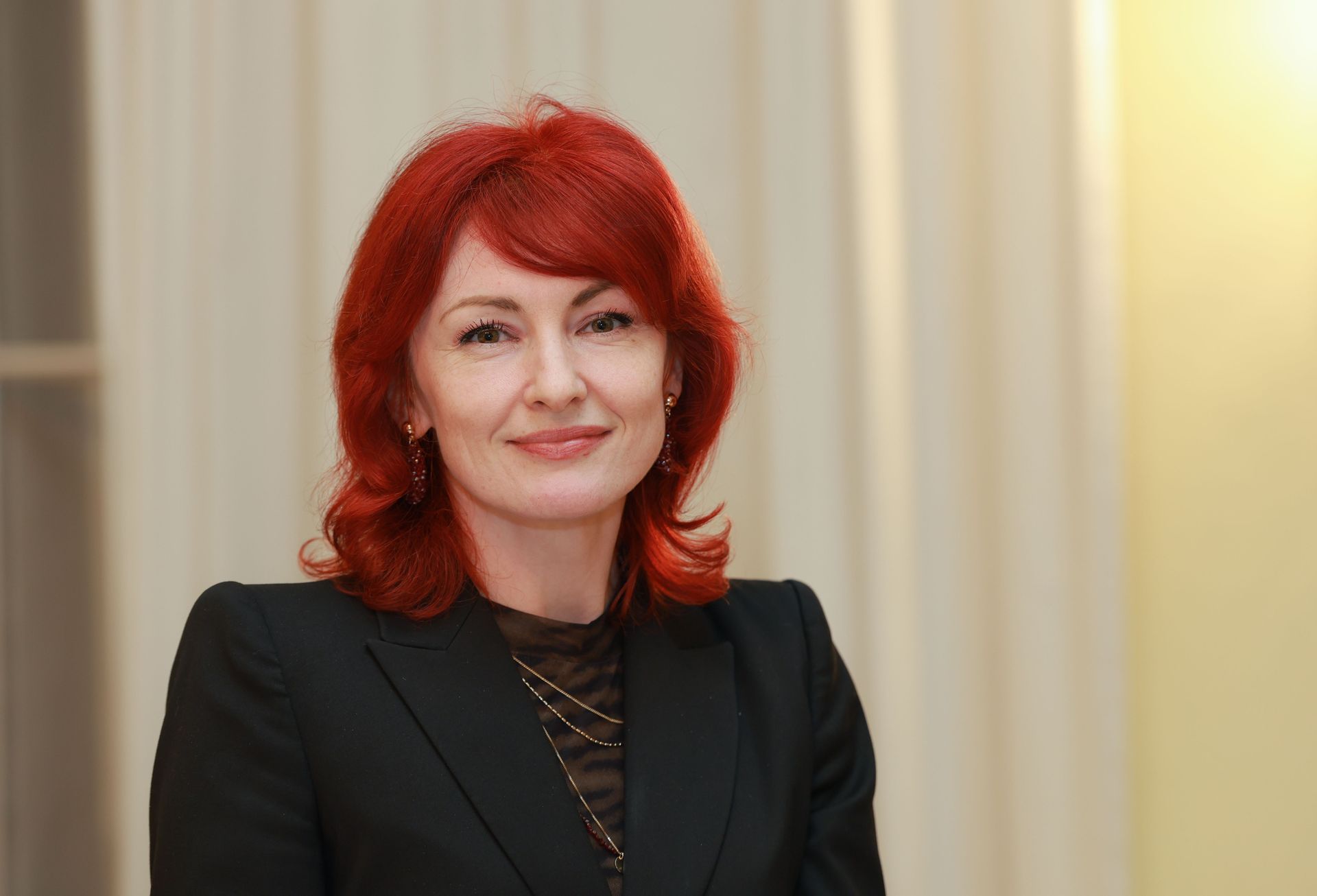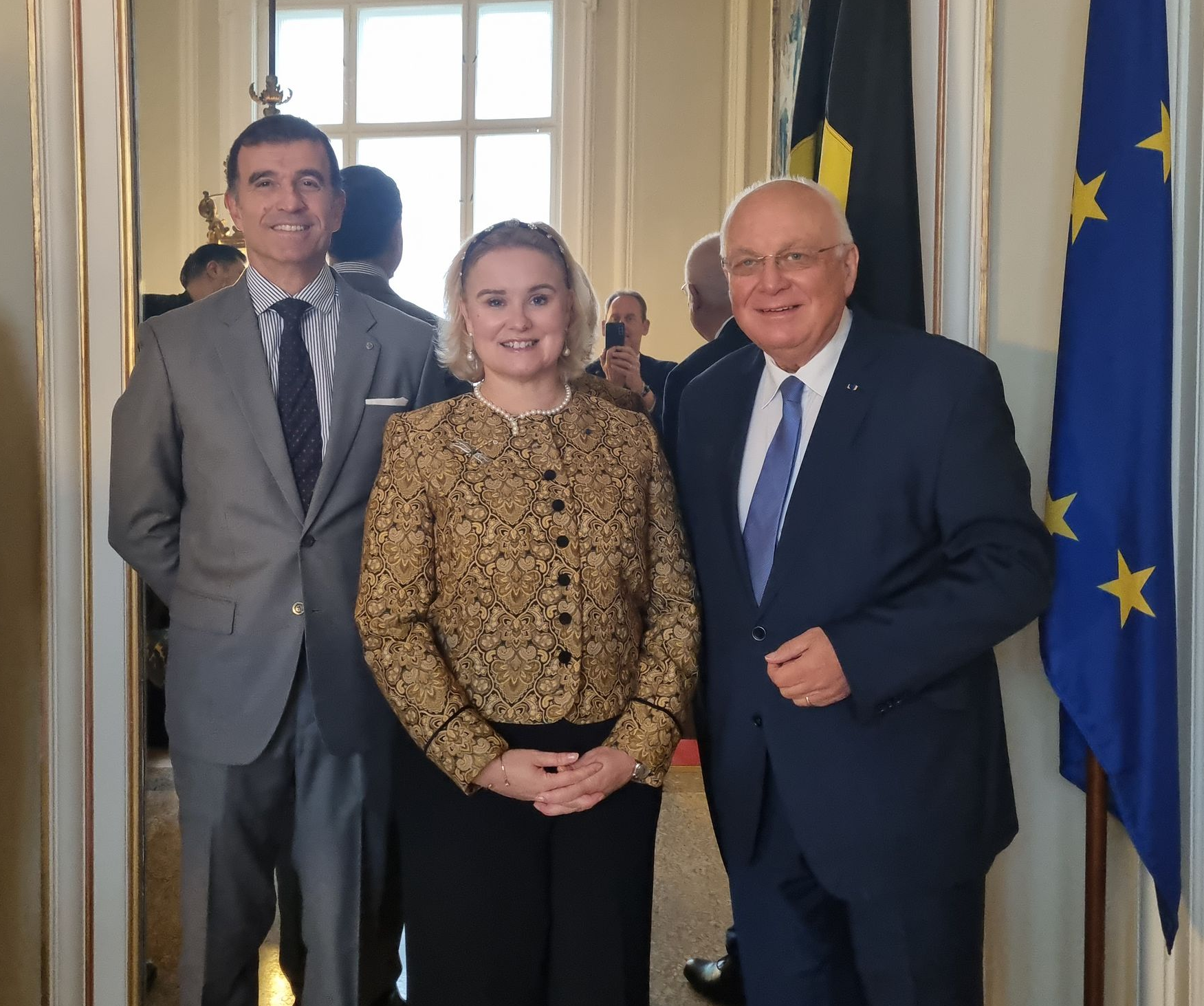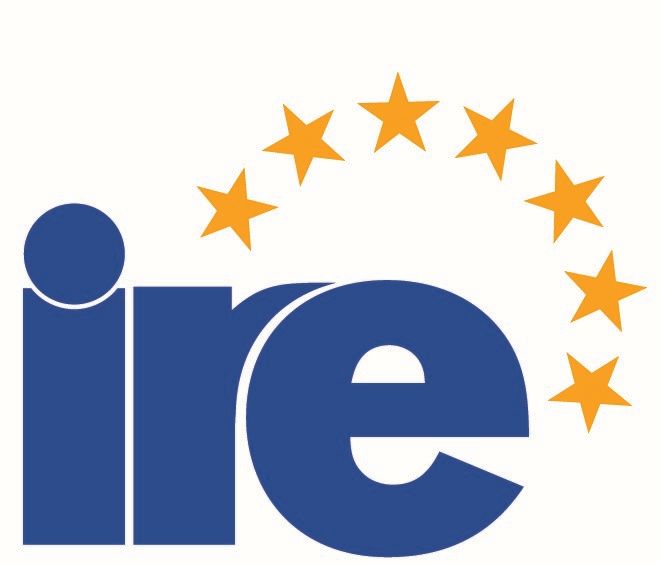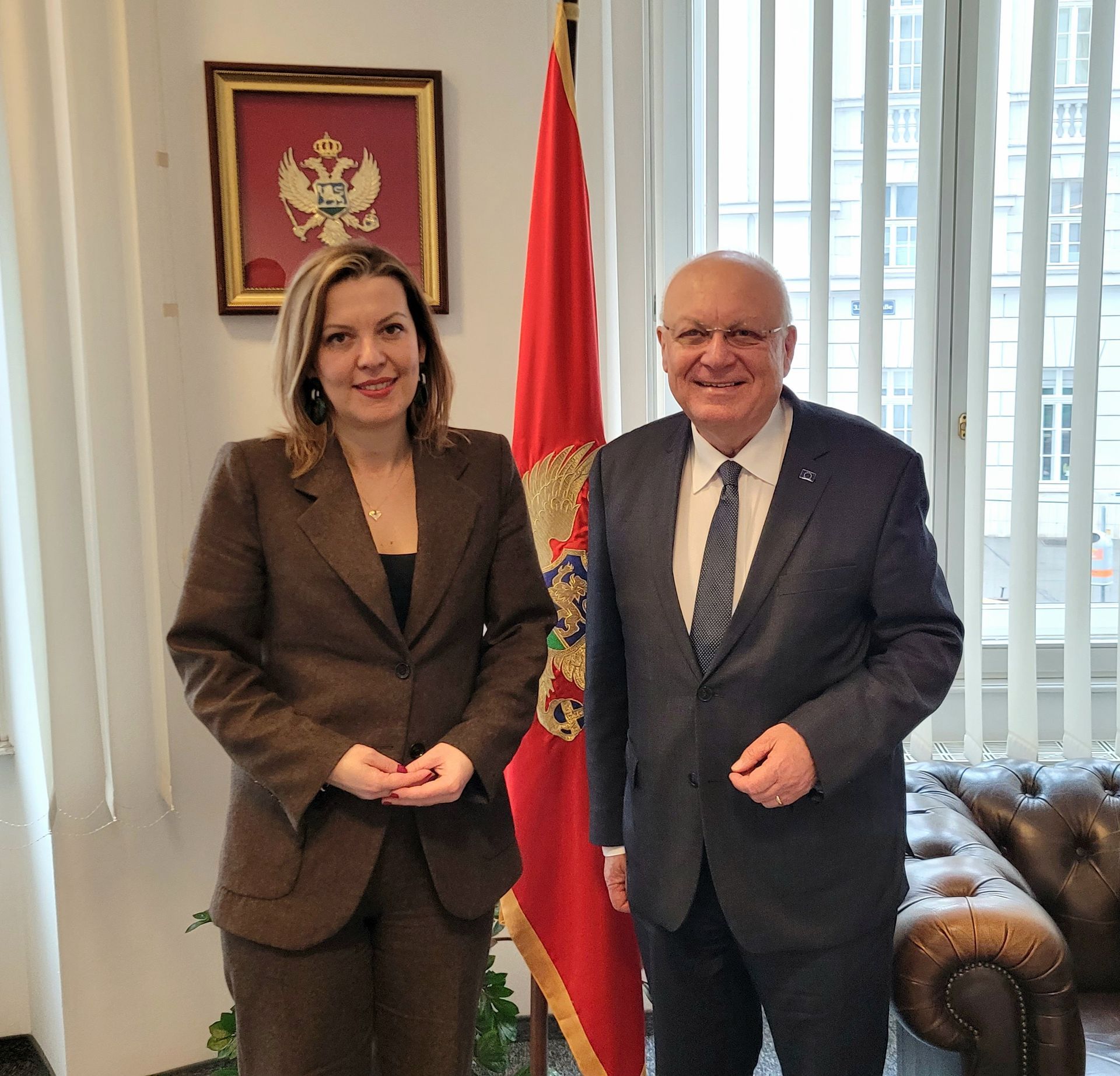Speech on "Industrial Heritage" at International Tourism Conference in Zabrze, Polend
Historical Industrial Heritage as tourism factor in the Regions

International Conference on Industrial Heritage Tourism
Zabrze – City as a Space for Development
7./ 8. April 2022
Speech of IRE-Chairman Prof. Franz Schausberger.
"Tourism is one of the sectors hardest hit by the Corona crisis worldwide. Hardly any other industry has been hit harder by the Covid pandemic than tourism. The two-time border closings in almost all of Europe and the lockdowns have badly affected hotels and restaurants. Suddenly not having the freedom to travel was a heavy blow for travellers and entrepreneurs alike. The consequences can still be felt.
The challenges facing tourism were already enormous befor the corona crisis. The travel industry suffered from a loss of trust and image. In addition, the debate about climate impacts and overtourism had significantly changed individual travel behavior. For some time now, the tourism industry oscillated between limitless growth and numerous new challenges that require a profound rethink.
The corona crisis accelerated this rethinking and gave the impetus for a new reception of tourism. The pandemic can also be seen as the beginning of a new, more sustainable era for tourism, both globally and locally.
I can say all this from my own experience, I come from a practically pure tourism region, from the state of Salzburg with winter and summer tourism, cultural tourism, skiing, hiking, recreation etc.
Corona suddenly changed the behavior of guests. When making a booking decision, the focus was no longer on the availability of WiFi, e-bikes or the size of the wellness area, but rather on concerns about health safety.
City tourism remains difficult, where half of the guests were still missing in 2021. Responsible for this are the cancellation of congresses, trade fairs and cultural events as well as the absence of travellers from Asia and America.
One thing is very clear: regional tourism has become much more attractive. Short distances and local recreation, familiar cultures convey a feeling of security.
We have to realize a major change in industrial culture. Many industrial regions have lost their economic importance as a result of the changes in recent decades, for example when we think of coal mining. Many have succeeded in turning an industrial region into an attractive tourist and scientific region by using their industrial heritage. Zabrze is a particularly good example of this.
The Mayor of Zabrze, Malgorzata Manka-Szulik, informed at the 17th Salzburg Europe Summit 2021, that her city had to say goodbye to coal and find other options for the residents. The city of Zabrze has historically seen a movement from the countryside to the city. Opportunities had to be created for the new immigrants from the rural regions to work and to live. The corona pandemic has reversed these requirements, and numerous people were fleeing the cities. People no longer want this urban offer, they want nature. People strive for opportunities to live outside the cities, they dream of a good quality of life.
The city of Zabrze therefore intensified its profiling in the areas of sport, culture and education.
Zabrze was and is an important center of the Upper Silesian industrial area (mining, machine and iron industry). Mining has been going on in the region since 1841. Zabrze has been doing great things for years, managing the transformation from a heavy industrial city to a recognized center of modern medicine, science, innovative technologies and post-industrial tourism. Today Zabrze is an important scientific, cultural and industrial center in the Upper Silesian industrial area. Among other things, there are institutes of the Polish Academy of Sciences, the Upper Silesian Philharmonic Orchestra and companies in the electronics, glass and food industries. It was absolutely the right decision by those responsible in the city. The mayor of the city, Małgorzata Mańka-Szulik, who has been in charge of the city since 2006, has a great merit for this future-oriented and far-sighted policy.
The importance of coal mining in Silesia, like everywhere in Europe, has declined sharply in recent years. Zabrze now uses the closed mines as an extraordinary tourist journey into the history of the industrial region.
In Zabrze, with the two historical coal mines - Guido and Queen Luise - the largest and most attractive industrial tourism complex in Poland was created.
You can learn about the development of mining technology from the end of the 18th century to the present day.
The restoration of the tunnels for tourism began in 2009. The Coal Mining Museum is the only museum of its kind in Europe. The industrial monument is very important for strengthening the identity of Upper Silesia.
So Zabrze made the right decisions at the right time.
Historic industrial heritage in other countries
Let me give you a few other examples of maintaining historical industrial heritage in other countries.
As I said, in general, the historical industrial heritage is becoming increasingly important. Especially in Eastern and Southeastern Europe, remains of old mines, factories, mills, locks, railway systems, warehouses and worker’s colonies have been preserved. This industrial heritage reflects the influence of the late 19th and early 20th centuries through its architecture and infrastructure. Now, these buildings are being revitalized in various projects for cultural and tourist purposes.
Therefore, in May 2015, the Institute of the Regions of Europe, together with the government of the Autonomous Province of Vojvodina (APV), organized a conference on "Industrial Historical Heritage" in Novi Sad/ Serbia. Importance of industrial heritage in Serbia is reflected in the fact that it is a part of a wider European heritage, because this buildings and infrastructure are in most cases built by engineers from different European countries in the late 19th and early 20th Century. Despite the growing interest, the largest number of these facilities is neglected, abandoned and left to gradual devastation. We presented examples of other European countries, especially those where industrial heritage has become an important catalyst for social and economic development through their revitalization and their function in a wider contribution to the development of new creative space, art, tourism, small businesses, and particularly identity of the local community.
For Czech Tourism, Covid-19 has shown that an increase in quality is urgently needed, one must achieve higher added value without falling into the overtourism trap. In addition, one must pay more attention to the good training of new employees. Tourism – not only in Chzech Republic – lost many skilled workers during the pandemic because they migrated to other industries. As Europeans, we must act in a coordinated manner on international markets and think more continually; because guests from overseas not only come to one country in Europe, they also visit several different countries in Europe.
With the focus on Cultural Historic Factories, especially on breweries, the Czech city of Pilsen became European Capital of Culture 2015.
Let me say a few words regarding tourism in my home country, Austria. Austria is very international orientated in tourism. In 2019, 75 percent of the guests came from abroad. With Corona the advertising activities had to be very focused on the domestic market and neighbouring market, especially the German guests.
The long-distance travellers, the Americans were the first to return. The Arabs, who have very high vaccination rates, are already on their way to Austria again. Still missing: Guest from many Asian countries.
In this context I would also like to mention the successful revitalization of the salt mine in Hallein near Salzburg in Austria. It is the oldest mine in the world that has been opened to the public and was opened as a museum in 1994. With over 260,000 visitors a year, it is one of the most popular tourist attractions in the Salzburg region.
Fun, adventure and mystical moments await you in this ancient area of "White Gold". Visitors ride with the mine train into the center of the mountain to a subterranean salt lake with a new multi-media show that transports them into a magical world of light and sound. They follow in the footsteps of the Ancient Celts, who had been mining salt here since 7000 years. With the Salt Mine Ticket you can visit also all the other museums of the city.
Bad Ischl in the Austrian region „Salzkammergut“ has become "European Capital of Culture 2024" under the motto "Salt. Water”.
One more remark: Cultural routes are one of the leading trends in contemporary tourism. These cultural routes are a unique product of cultural tourism that link together different attractions and interesting destination points in a country, or throughout various countries. Cultural routes influence the development of the economic sector, and are one of the best solutions for the cultural and economic development of entire regions.
So far, the European Council has established twenty-four different cultural routes that span seventy countries.. It is interesting to note that industrial cultural routes are becoming increasingly popular, and that the European Route of Industrial Heritage now represents more than one thousand locations in forty-three countries that attract two to three million visitors each year.
EU-recovery fund for Poland
Europe’s recovery plan, NextGenerationEU finances reforms and investments in EU countries from the start of the pandemic in February 2020 until 31 December 2026. Its aim is to reduce the economic and social impact of the COVID-19 crisis and make European economies and societies more sustainable, resilient and better prepared for the challenges and opportunities of the green and digital transitions. It is relevant for all industrial ecosystems, including tourism. EU member states are responsible for developing national recovery and resilience plans.
Depending on the EU country, tourism is covered either by tourism-specific measures that modernise the sector or horizontal measures that are relevant to all sectors. Poland will have around 58 billion euros available from the EU recovery fund.
EU is focussing on structured funding programs to be developed for tourism. It is not just about money, but also about programs to train employees, to advance digitization and to develop and expand sustanable tourism. I think, there is a big chance to develope regional and local projects of industrial heritage for tourism.







Hot Issue - der Newsletter
Regelmäßige Informationen aus den Regionen Europas und von unseren Mitgliedern.
Regelmäßig informieren wir unsere Mitglieder sowie Interessierte über tagesaktuelle Themen und Entwicklungen in den Regionen Europas, den Institutionen der Europäischen Union und über die Aktivitäten des Instituts der Regionen Europas (IRE).
Melden Sie sich bei unserem Newsletter gerne jederzeit an
stefan.haboeck@institut-ire.eu
Tel: +43-662-843 288-30



